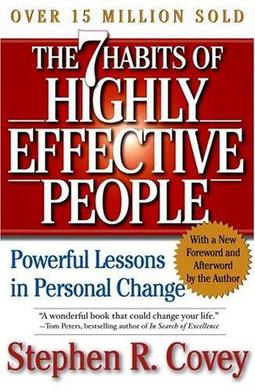Chapter 1 : In order to change, you have to address your character and not your behaviour
Generally speaking there are two routes to self-improvement
and to changing your own life. One way is addressing the skills necessary for a certain
desired behavior; i.e., by studying communication skills or
time-management techniques. Alternatively, you can take the long way round by digging a bit deeper and working on your own character: the
fundamental habits and belief systems which form your
view of the world.
The first approach is effectively an attempt to take a
shortcut to success: becoming rich without working for
your money, or achieving personal growth without under-
going any real development. Yet real personal growth cannot be reached via shortcuts. On the road to true effectiveness, you cannot afford
to skip a single step. This is true for accomplishments such as playing tennis
or the piano, and just as true for the emotional development
of a person as well as the development of their character.
If you really want to change, you need to work "from
the inside out." Only once you’ve drastically changed yourself can you start to change the world around you. If, for
example, you would like to have a happy marriage, you
must first become a more positive person yourself.
If you want to be seen as a trustworthy person, it is
no good working on your communication skills, you have
to work instead on actually becoming a more trustworthy
person. Instead of scratching the surface, you have to really address your inner character.
In order to change, you have to address your character and not your behavior.

No comments:
Post a Comment